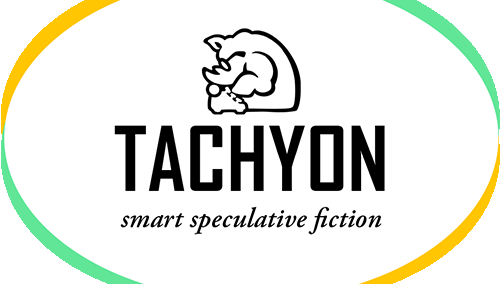Tachyon tidbits featuring James Morrow, Bruce Sterling, Mary Shelley, and James Tiptree, Jr.
The latest reviews and mentions of Tachyon titles and authors from around the web.

James Morrow, Bruce Sterling, Mary Shelley (Portrait: Richard Rothwell), and James Tiptree, Jr.
For FIVE DIRECTIONS PRESS, Gabrielle Mathieu loves James Morrow’s THE ASYLUM OF DR. CALIGARI.
This is less a fantasy novel in the usual modern sense than an allegory about war and the patriotic frenzy that inspires men to lay down their lives. The plot is an elegant scaffolding on which to hang the author’s gems of observation. And I found some of the scenes disturbing. But the book offers considerable pleasure in its musings on art, history, and philosophy.
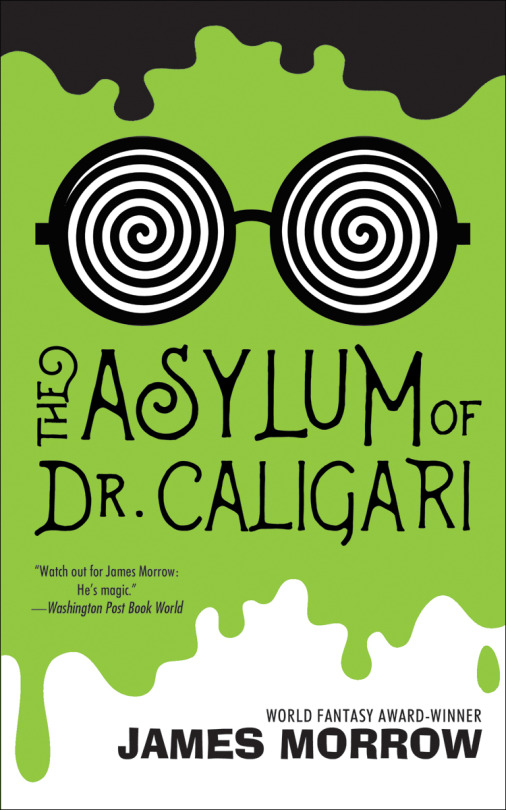
Stephen Theaker at his THEAKER’S QUARTERLY FICTION enjoys Bruce Sterling’s Sidewise Award-nominated PIRATE UTOPIA.
****
I enjoyed the book while finding it a bit hard to get to grips with, much like Michael Moorcock’s Jerry Cornelius and Oswald Bastable books. The book also contains an introduction by Warren Ellis, an interview with Bruce Sterling, a useful afterword by Christopher Brown, and a note by the cover artist, all of which, while interesting and often educational, does make you wish the story itself was a bit longer.
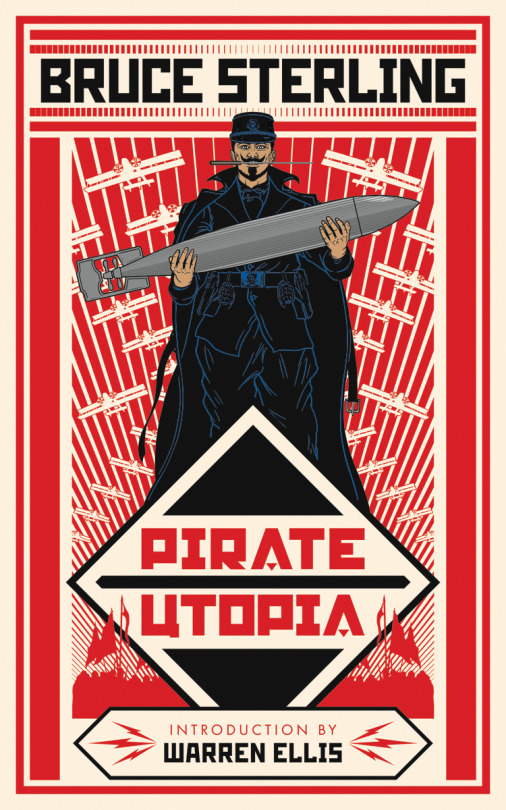
BEST SCIENCE FICTION BOOKS listing of The Greatest SF Authors includes both Mary Shelley and James Tiptree, Jr.
There’s a post I’ve just come across (it seems to be a year old, but you know how these things disappear and resurface on the web) that claims to list “The Greatest Sci-Fi Authors of All Time“.
It’s an interesting, if largely predictable list: Isaac Asimov, Philip K. Dick, Ursula K. Le Guin, Frank Herbert, Arthur C. Clarke, Ray Bradbury, George Orwell, Jules Verne, Tanith Lee, Robert Heinlein, Iain Banks, Octavia E. Butler, Alfred Bester, Dan Simmons, Peter Watts, Gene Wolfe.
I’m not going to argue with that. Well, I could: Orwell makes the list for just one novel, Lee was probably better at fantasy than sf, Simmons drifted more into horror, and Iain Banks wrote mainstream fiction it was Iain M. Banks who wrote sf (just being pedantic there). But really, it’s a halfway decent list, if you accept that the high water mark of sf was sometime between the 1940s and 1960s (the era of Asimov, Dick, Herbert, Clarke, Bradbury, Orwell, Heinlein, Bester – half the list). But there are at least as many names as good if not better missing from this list.
So here we go, here’s a list of the greatest sf writers who didn’t make the list but should have.
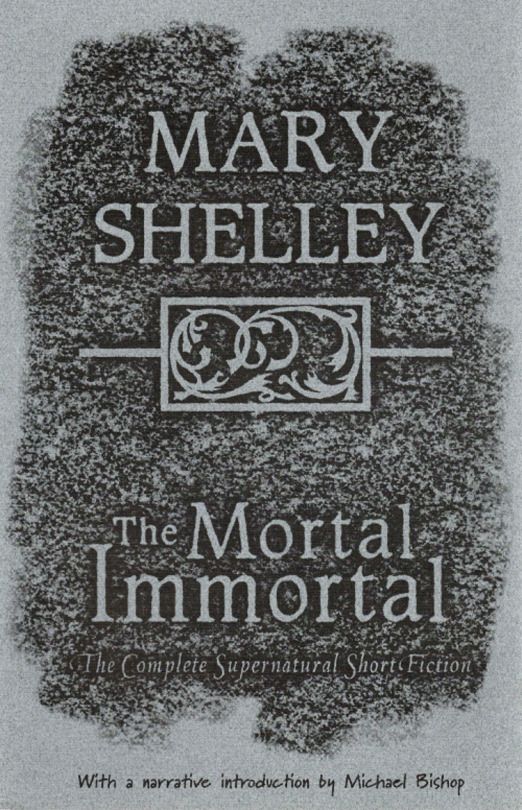
If Wells gave us the shape of modern science fiction, there are some would argue that it was Mary Shelley who created the genre. Of course, it’s not really as simple as that, but it is hard to deny that FRANKENSTEIN is one of the founding texts of science fiction. There aren’t that many words from science fiction that have entered the language, but “Frankenstein” is certainly one of them. It’s a book that continues to haunt our imaginations to this day, even those who’ve never actually read it. And it wasn’t her only contribution to science fiction, she later went on to write THE LAST MAN, which helped to establish the strand of catastrophe story that we still see today.
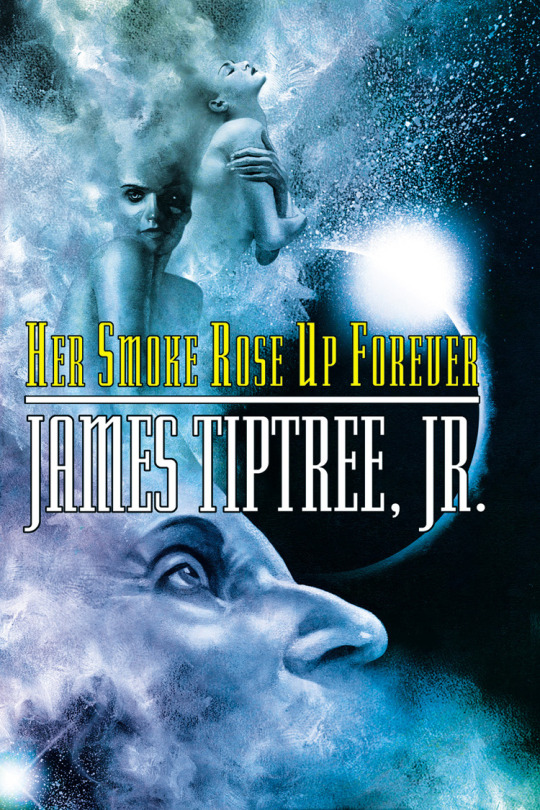
There can’t be many sf writers who made such a big splash so quickly. Her first stories appeared in 1968, and she committed suicide less than 20 years later, yet in that brief career she won two Hugo Awards (for “The Girl Who Was Plugged In” and “Houston, Houston, Do You Read”), three Nebula Awards (for “Love is the Plan, the Plan is Death”, “Houston, Houston, Do You Read” and “The Screwfly Solution”, written under her other pseudonym, Raccoona Sheldon), plus a bunch of other awards. And if there had been any justice, she would have won plenty more, it remains inconceivable, for instance, that “The Women Men Don’t See” or “And I Awoke and Found Me Here on the Cold Hill’s Side” or “A Momentary Taste of Being” or any of a dozen other stories won nothing. She was primarily a short story writer; the two novels published late in her career, UP THE WALL OF THE WORLD and BRIGHTNESS FALLS FROM THE AIR, really didn’t match up to the best of her short fiction. But those stories, most of them collected in HER SMOKE ROSE UP FOREVER, had a profound effect on the science fiction of her day.
For more info on THE ASYLUM OF DR. CALIGARI, visit the Tachyon page.
Cover by Elizabeth Story
For more info on PIRATE UTOPIA, visit the Tachyon page.
Cover by John Coulthart
For more info on THE MORTAL IMMORTAL: THE COMPLETE SUPERNATURAL SHORT FICTION, visit the Tachyon page.
For more info about HER SMOKE ROSE UP FOREVER, visit the Tachyon page.
Cover by John Picacio
